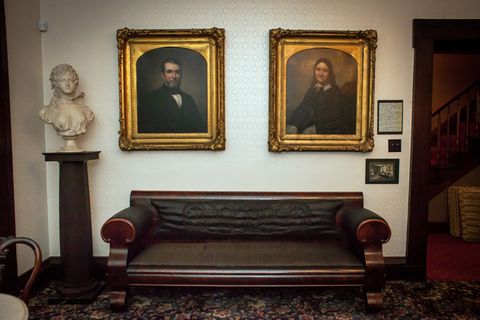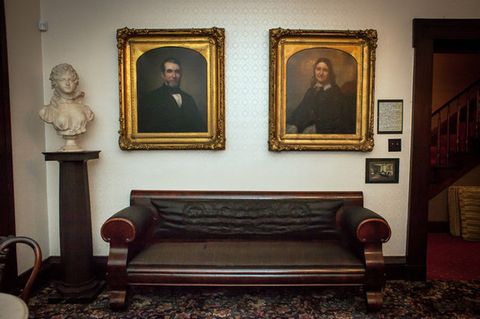We often picture Abraham Lincoln in his office, perhaps hunched over papers or in deep discussion. But like any of us, he needed spaces away from the demands of his office, places to simply be. These weren’t grand monuments, but quiet corners where his mind could wander and his spirit could find solace. Let’s step beyond the familiar chair and explore these hidden havens where Lincoln found clarity and connection.
Abraham Lincoln, a man burdened by immense responsibility, surely understood the need for respite. While his iconic stovepipe hat and stoic demeanor are etched in our minds, the places where he sought quietude remain largely in the shadows. These weren’t just random spots; they were deliberate retreats, crucial for his mental fortitude and his ability to connect with the profound challenges of his time. This exploration delves into those secret sanctuaries, revealing how they shaped his thoughts and his spirit. Think about it: don’t we all have a favorite bench, a quiet trail, or a cozy nook where we go to process life’s big questions? Lincoln was no different, and his chosen spots offer a unique glimpse into the man behind the legend.
The Solitude of the Soldiers’ Home
One of Lincoln’s most cherished escapes was the Soldiers’ Home, located just outside Washington D.C. He and his family spent summers there, a welcome break from the sweltering heat and constant pressures of the White House. It was a place of relative peace, offering sweeping views and a chance for long walks. Imagine Lincoln, perhaps with a book in hand or simply gazing at the distant landscape, finding a moment of calm amidst the storm of the Civil War. This setting allowed him to reflect deeply on the war’s progress and the human cost, fostering a profound connection to the soldiers he was leading. He even drafted a significant portion of the Gettysburg Address during his stays here. It was a vital space for both contemplation and a deeper understanding of the nation’s plight.
The Quiet Paths of the White House Grounds
While the White House itself was a hub of activity, its surrounding grounds offered Lincoln opportunities for private thought. He was known to walk these paths, often alone, to clear his head. These strolls weren’t just aimless wanderings; they were deliberate moments of mental recalibration. Picture him walking under the shade of trees, the sounds of the city muffled, his thoughts turning inward. These quiet moments on the grounds allowed him to strategize, to grapple with difficult decisions, and to find a sense of inner balance. It’s a reminder that even in the most public of lives, personal space for reflection is indispensable. His connection to these grounds was personal, a place where he could shed the presidential persona for a brief while.
His Office After Hours: A Personal Sanctuary
Though it was his place of work, Lincoln’s White House office also served as a sanctuary, especially during late hours. After the day’s visitors and meetings concluded, he would often remain, surrounded by his papers and books. This was a space where he could engage with complex ideas without interruption, where he could wrestle with drafts of speeches and ponder the intricacies of policy. The quiet hum of the night would have been a stark contrast to the daytime clamor. Here, in the solitude of his office, he could forge a deeper connection with his own thoughts and the weighty responsibilities he bore. It’s a testament to how a familiar space can transform into a place of profound personal exploration.
Moments of Connection with Nature
Lincoln had a deep appreciation for the natural world. While specific ‘secret spots’ in nature aren’t always documented, his writings and accounts suggest he found solace in rural landscapes. Think of his childhood in Kentucky and Indiana, surrounded by forests and fields. This early connection to nature likely stayed with him. He would have sought out opportunities to experience this tranquility, perhaps on rides outside the city. These moments allowed him to step away from the human drama of the war and connect with something enduring and peaceful. Nature offered a perspective, a reminder of the larger rhythms of life that offered a strange sort of comfort during turbulent times. This connection wasn’t just for his own peace; it informed his understanding of the land and the people who inhabited it.
The Power of Reading and Solitary Pursuits
Beyond physical locations, Lincoln’s ‘secret spots’ also existed within his own mind and through his solitary activities. His love for reading, often late into the night, was a form of personal retreat. Books provided not just knowledge but also a mental escape, a way to connect with different ideas and perspectives. He also enjoyed simple, solitary pursuits like reading aloud or playing games. These activities, though seemingly minor, were crucial for his mental well-being, offering a different kind of contemplation. They were private moments that recharged his spirit and allowed him to return to his duties with renewed vigor. These internal sanctuaries are just as vital as any physical location for fostering connection with oneself.
The Enduring Lesson of Finding Your Own Space
Lincoln’s reliance on these quiet havens offers a powerful lesson for us all. In our own busy lives, finding moments and places for contemplation and connection is not a luxury, but a necessity. Whether it’s a park bench, a favorite armchair, or a quiet walk, these personal sanctuaries allow us to process our thoughts, reduce stress, and deepen our understanding of ourselves and the world around us. Lincoln’s story reminds us that even the most powerful leaders need their quiet corners. So, where do you go to find your peace. What are your secret spots for contemplation and connection. Discovering and utilizing these spaces can profoundly impact our own resilience and our ability to navigate life’s challenges, just as they did for Lincoln.
Abraham Lincoln’s life was defined by immense pressure, yet he intuitively understood the importance of seeking out spaces for personal reflection and connection. From the expansive grounds of the Soldiers’ Home to the quiet solitude of his office after dark, these secret spots provided him with the mental and emotional fortitude to lead a nation through its darkest hour. His appreciation for nature and the solace found in solitary pursuits further underscore his need for these personal retreats. The enduring message from Lincoln’s life is clear: cultivating our own ‘secret spots’ for contemplation and connection is essential for our well-being and our capacity to engage meaningfully with the world. These aren’t just places; they are vital components of a balanced and resilient life.












